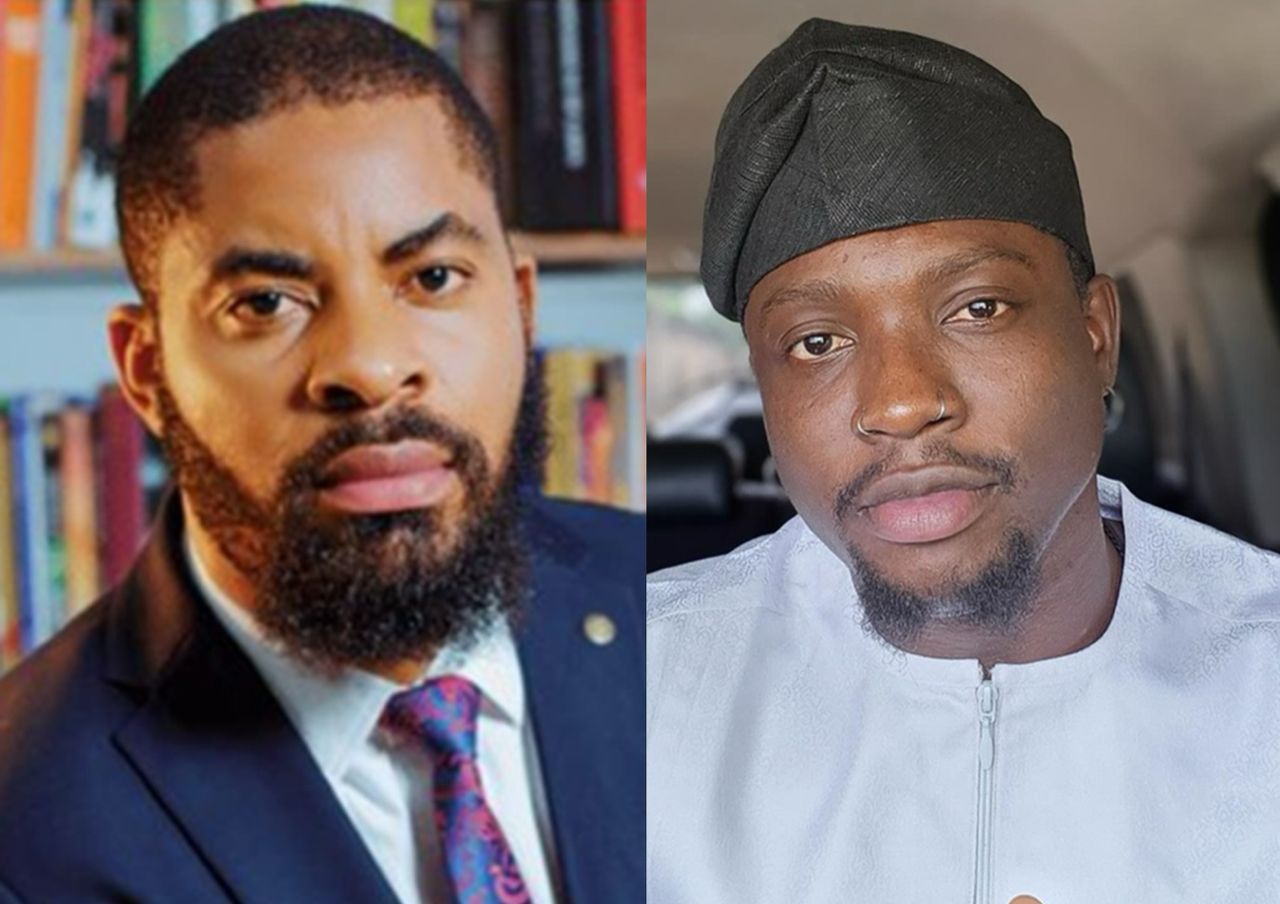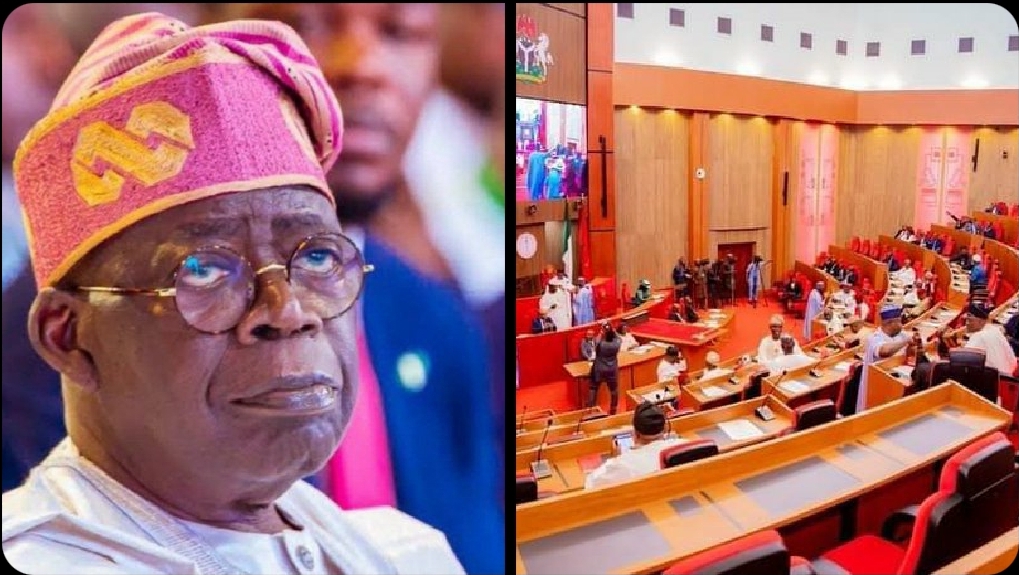
Labeled as Bandits and Threatened with Death: Deji Adeyanju Releases Explosive Statement on VeryDarkMan’s Arrest

Controversy erupted once again around the Nigerian activist and social media personality, VeryDarkMan, following his recent arrest, with human rights lawyer Deji Adeyanju issuing a blistering statement that has sparked national concern and outrage. According to Adeyanju, the arrest was marred by shocking acts of intimidation, crude labeling, and threats of extrajudicial violence—all carried out by the very officers entrusted with upholding the law. The situation has quickly escalated into a flashpoint in the ongoing debate over police brutality, freedom of expression, and the treatment of outspoken figures in Nigeria.
Adeyanju’s statement, released on Friday, painted a harrowing picture of the events surrounding VeryDarkMan’s detention. In his own words, he recounted how security operatives allegedly referred to the activist and his companions as “bandits” and threatened to shoot them in cold blood—an act that he claimed took place right in the presence of a woman identified as Mrs. Otse. The imagery was stark and deeply unsettling. What began as an arrest turned into an experience of intimidation and psychological warfare, Adeyanju stated, adding that the detainees were made to feel less like citizens under investigation and more like enemies of the state.
The name "VeryDarkMan," known across Nigerian digital spaces for bold, no-holds-barred commentary, is no stranger to controversy. His online presence has often been polarizing—praised by some as the voice of the people, a disruptor calling out corruption and double standards; while others view him as too brash, too confrontational. However, regardless of where one stands on his content, the details of his recent arrest, as presented by Adeyanju, have raised critical questions about abuse of power and due process.
“The officers labeled them as ‘bandits,’” Adeyanju revealed, “and threatened to shoot them in the presence of Mrs. Otse.” These words, heavy with implication, have left many Nigerians shaken. In a country where encounters with law enforcement can too often escalate into deadly confrontations, especially for those perceived as dissenting voices, this revelation strikes a familiar and disturbing chord. The idea that a citizen, regardless of his opinions, could be treated with such contempt and violence by the state is a chilling reminder of past incidents that have left irreversible scars on Nigeria’s social conscience.
According to Adeyanju, this was not simply a case of arresting someone for alleged infractions. It was an attempt to humiliate, degrade, and silence. The broader implication, he stressed, is the creeping normalization of state overreach. “These actions are not only illegal,” the lawyer noted, “but they are a clear sign of the growing intolerance for voices that challenge the establishment.”
Social media quickly lit up with reactions to the statement. Many users expressed outrage, calling for the immediate release of VeryDarkMan and demanding accountability from the officers involved. Hashtags like #JusticeForVDM and #EndPoliceBrutality began trending on Nigerian Twitter, echoing the frustrations of citizens who feel that despite the promises of reform following the 2020 EndSARS protests, little has changed on the ground.
Others took a more cautious stance, asking for the full facts to emerge before rushing to judgment. But even among skeptics, the severity of the allegations prompted serious concern. If indeed law enforcement officers are threatening detainees with death and labeling them as criminals without trial or investigation, then the very foundation of civil rights and democratic order is under threat.
This incident also throws the spotlight back on Nigeria’s security agencies and the persistent challenge of unchecked authority. Over the years, there have been numerous reports of unlawful detentions, torture, and extrajudicial killings. Adeyanju’s statement has revived fears that despite public outcry and multiple panels of inquiry, systemic reform has been sluggish or non-existent. The question now is whether this latest incident will be swept under the rug or spark real accountability.
VeryDarkMan’s arrest has also reignited the debate about the cost of free speech in Nigeria. For many, he represents a new wave of digital activism—raw, fearless, and unapologetically loud. His critics argue that his approach is abrasive and inflammatory, but even they acknowledge the dangerous precedent that could be set if his arrest and treatment go unchallenged. It sends a signal, they argue, that no one is safe from state repression—not even those with large followings and public platforms.
In a democracy, dissent should not be punished with death threats. Criticism should not be met with loaded guns. The arrest of VeryDarkMan and the explosive allegations made by his legal representative shine a spotlight on the urgent need for structural change within Nigeria’s law enforcement institutions. This is no longer just about one man’s arrest—it is about the rights of all Nigerians to speak freely, to be protected by the law, and to live without fear of being labeled and eliminated by the very people sworn to serve and protect.
Calls are now growing for an independent investigation into the circumstances surrounding the arrest and detention. Human rights organizations, including Amnesty International Nigeria, have expressed interest in the case, with some activists warning that failure to address such behavior will only embolden rogue officers and deepen public distrust.
As of now, VeryDarkMan remains in custody, and details about the charges against him are still emerging. Meanwhile, Deji Adeyanju has vowed to pursue every legal avenue to secure his client’s release and expose the injustice he claims is at play. “We will not be silenced,” he declared. “And we will not allow Nigeria to descend into a place where might is right and voices are silenced with threats of bullets.”
In a country that has witnessed the dangers of unchecked power before, these words serve as both a warning and a call to action. Whether or not one agrees with VeryDarkMan’s methods or message, the principle at stake is universal: no Nigerian should ever be treated as less than human for exercising their voice. And no officer should ever hold the power to shake that foundation with the simple pull of a trigger.


